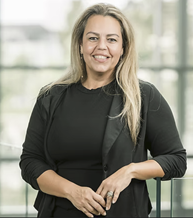 |
Center for Nonlinear Studies |
Since the first moment that humans look to the high sky, they awed about fundamental questions of life. Furthermore, the first pioneers wondered if the stars and space could hold the key to life’s mysteries and thought their journeys could unlock the secrets. As civilization and explorers, we started to crave for the next frontier and to build a bridge between our dreams and our highest achievements. Now, we are searching for the space frontiers again. Human space exploration is expanding rapidly, with missions such as Artemis and private space station initiatives increasing human presence in Low-Earth Orbit (LEO). But spaceflight has been linked to various physiological and especially neurological changes. To address this, we employed human brain organoids derived from induced pluripotent stem cells (iPSCs) as a model to study space-induced neural changes. We identified a novel phenomenon, Space-Induced Neural-Senescence (SINS), characterized by the accumulation of retrotransposons elements, which triggers a cytokine-mediated inflammatory response. To inhibit and rescue neural health, we used a reverse transcriptase inhibitor (RTi) suggesting a potential therapeutic approach and translation of our findings. Leveraging ISS experiments, we defined SINS-associated molecular alterations in diverse brain cell types and linked these changes to neurodegenerative conditions, providing insights into spaceflight’s neurological impact while accelerating drug discovery for untreatable brain disorders. We are using the space environment to accelerate scientific discoveries that can cure diseases and make our life better on this planet. For us, pioneers and explorers that are still looking above, space continues to play a fundamental role in our lives, through our technological achievements and scientific discoveries.
Bio: Dr. Aline Martins is Associate Director of ISSCOR (Sanford Integrated Space Stem Cell Orbital Research Center) at University of California at San Diego. She specializes in biotechnology, neuroscience and translational medicine.

Host: Avadh Saxena